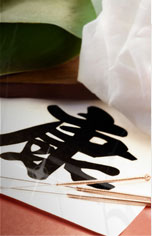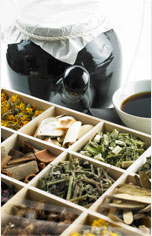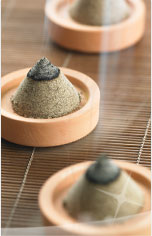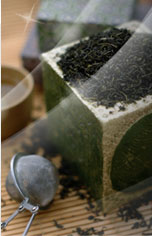| |
Managing Stress with Acupuncture and Chinese Herbs |
|
Stress generally refers to two aspects: a feeling of emotional or physical tension, and the body’s response to a challenge or demand. In short bursts, stress can be positive; it helps us encounter and respond to danger and challenges. But when stress lasts for a long time, it may harm your health.
Our response to stress can either help or hinder our body’s ability to cope with these various stressors in our lives. Healthy responses to stress include appropriate physical exercise, good eating habits, positive thinking, adequate rest, and reaching out to friends and family for support. Unhealthy responses to stress include negative thinking, overexertion, poor eating habits, lack of sleep, and isolation. These unhealthy responses can trigger physical and mental health issues. Over time, ongoing stress and unhealthy responses to stress can actually be damage our health.
Even if the stressors are no longer present, the body continues to keep the stress response active. This results in the depletion of our nervous system, lymphatic organs, kidneys and adrenal glands, which can pave the way for a wide variety of symptoms and signs.
|
|
Signs and Symptoms of Stress
- Anxiety / Depression
- Difficulty focusing
- Digestive issues
- Fatigue
- Frequent aches and pains
- Headaches
- High blood pressure
- Sexual problems
- Trouble sleeping
- Weight loss or gain
|
| |
Stress in TCM
In Traditional Chinese Medicine (TCM), the body and mind are intimately connected. When the body and mind are functioning properly, Qi (the vital energy of the body) flows smoothly throughout the body. Dietary, environmental, lifestyle and hereditary factors as well as extreme or prolonged emotions interrupt the flow of Qi, causing an imbalance of the organs of the body. Stress affects the body by causing blockage of Qi, especially Qi of the Liver. Liver Qi is largely responsible for the movement of Qi through the entire body and the free flow of Blood, which provides nourishment to the organs and tissues of the body. Blocked Liver Qi impairs the Blood and Qi circulation of the entire body and proper functioning of Zang Fu organs, resulting in a wide variety of physical and mental/emotional signs and symptoms.
NOTE: The names of organs are capitalized when referring to the entire, functional organ systems in TCM perspective: Liver, Blood, etc. The names of organs are lower-cased when referring to the distinct, biomedical organs: liver, blood, etc.
|
TCM Treatment for Stress
The primary goal of TCM treatment for stress is correcting the flow of Qi and Blood to ensure the proper functioning of internal organs and restore the balance within the mind, body, and spirit. TCM treatments for stress management are unique for each patient, as every person has a unique constitution and imbalances. As a patient’s symptoms and issues change, the treatment will be adjusted accordingly. Healing time depends on the severity of symptoms and general health of the patient. Some patients report relief after just one session of acupuncture, while others may take up to several weeks to months to notice improvement. A typical acupuncture treatment schedule might begin with 1-2 sessions a week, tapering as the patient’s symptoms improve.
|
Acupuncture
Acupuncture consists of stimulating specific points on the body by inserting fine, sterile needles. Acupuncture benefits both physical and mental/emotional functioning by promoting the smooth flow of Qi and restoring the balance of internal organs.
Acupuncture is well-known for reducing stress. Recent research suggests that acupuncture stimulates the release of oxytocin, a hormone that regulates the parasympathetic nervous system. Opposite to “fight-or-flight” response governed by the sympathetic nervous system, the parasympathetic nervous system triggers “rest-and-digest” or “calm-and-connect” response; the parasympathetic nervous system promotes functional stability in the body by regulating respiration, circulation, and digestion.1
Acupuncture also triggers the secretion of endorphins, a body’s natural pain-killer,2 as well as serotonin, the neurotransmitter involved with mood.3
Adjunctive Therapies
Besides acupuncture, Chinese herbal formulas are often prescribed to strengthen the mind, to resolve the blockage of Qi, and to restore the balance of internal organs. Nutritional and lifestyle modification, meditation practices, and/or stretching and exercise may be suggested to support and promote a balanced and healthy body, mind and spirit.
|
|
Tips for Coping with Stress
- Eat healthy, well-balanced meals
- Exercise regularly
- Get adequate sleep
- Give yourself a break if you feel stressed out
- Practice deep breathing or meditative exercises such as Yoga and Qi Gong
- Share your problems with a parent, friend, counselor, doctor, or pastor
- Talk to a psychologist, social worker, or professional counselor if problems continue or you are thinking about suicide
|
|
|





